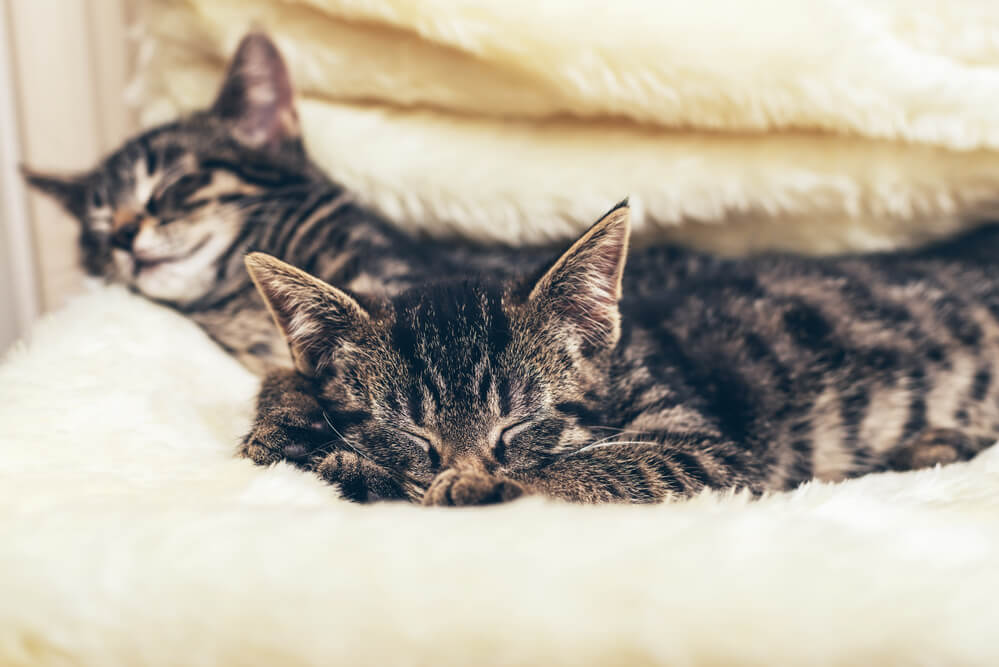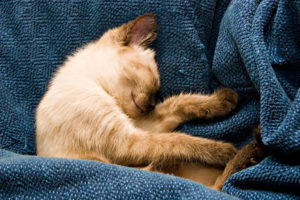In this article, we will be discussing how long do cats live. In particular, we will discuss the average lifespan of cats.
Cats have a reputation for being loners and there is an oft-quoted statistic that approximately 40% of cats are allowed outside to roam.
The life expectancy of outdoor cats varies widely and this factor influences the average cat lifespan. Cats that are allowed to roam freely may live up to ten years, whereas indoor cats can make it to fifteen or more.
The majority of indoor cats (approximately 80%) [5] will spend their lives in a home environment and these cats typically have a longer lifespan than their outdoor counterparts, generally living between 12 and 16 years.
FACTORS THAT IMPACT LIFE EXPECTANCY
The main factors that influence the average lifespan of a cat are listed below.
• sex
• diet
• lifestyle
• breed
• environment
• health conditions/ailments
• hereditary traits.
As a broad generalisation, male cats live longer than female cats and indoor cats have a much longer lifespan than outdoor cats. Once again this may vary from one breed to another.[22] A high-quality diet with balanced nutrients is important for maintaining good feline health and will help provide energy in old age.
Unneutered males typically have a shorter life expectancy, but neutering will help prolong the lives of both genders. The average cat lifespan stated in many reputable sources is twelve to fifteen years [4]. Another common number for the average life expectancy of cats up to seven years old is fourteen [1], but this figure does not take into account the environmental factors listed above which can greatly affect how long do cats live.
THE LIFE EXPECTANCY OF outdoor CATS
A survey conducted by the American Cat Fanciers Association (ACFA) in 1997 found that the average age for an outdoor female cat was 2.8 years, whereas males lived to 3.1 years of age. 33% of all cats surveyed were still living at 5 years compared with 17% of indoor cats.
Outdoor cats are exposed to far more dangers than their counterparts and this will affect their life expectancy considerably; they suffer not only from natural threats like predators and disease, but also from accidents including motor vehicle collisions, fights with other animals and poisons.
PROTECTING YOUR CAT
There are a number of things you can do to ensure your cat lives as long as possible:
• provide CATS WITH A HIGH-QUALITY DIET
• keep your cat indoors at all times
• ensure an indoor environment that is stimulating and provides places to climb, hide, rest, etc.
• keep your cats nails trimmed to minimise the risk of accidents
How to keep your cat healthy ?
It is important that cats are kept in good health and fitness both for their own sake and to increase their life expectancy. This can be achieved by:
• ensuring a high-quality diet
• providing plenty of stimulation, playtime and interaction with people or other animals
• giving them access to the outdoors on a leash only under supervision
• keeping nails trimmed
Cats have an average lifespan of 12 – 15 years but this greatly varies depending on breed, environment, diet, and lifestyle factors. You must know how long do cats live so that you can provide your cat with the best quality of life possible during his or her time with your family. If your cat lives
What happens as a cat ages?
Cats age on an individual basis. Many factors can affect their aging process, including whether they are indoor or outdoor cats, the breed of cat, and how well they are cared for (quality diet, regular veterinary visits). A healthy diet is helpful in maintaining a younger lifestyle for your feline friend.
The average life expectancy of a housecat is 12-15 years with many living to 20 years or more. Outdoor cats have a considerably shorter lifespan with only about 5-8 years being common. This early death is largely due to predators, automobiles, disease and injury.
Breed has an impact on the length of your cat’s life as well. Some breeds are genetically healthier than others so that
What do cats usually die from?
Older cats can die from disease or medical problems that may not have been serious enough to kill younger ones. This is why it’s important for your cat to see his vet regularly to maintain a good level of health and wellness. Some common conditions which older cats may be afflicted with are arthritis, heart disease, cancer, feline lower urinary tract disease (FLUTD), chronic renal failure (CRF), and diabetes.
A cat who lives indoors will likely live longer than one who lives outdoors because indoor-only cats tend to avoid dangers like predators, cars, toxins in the environment, other animals and fights. Diseases such as FIV/FELV are much more prevalent in outdoor cats than in indoor ones.





